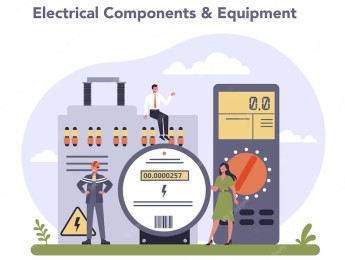Advanced payroll management is pivotal in seamlessly functioning an organisation's financial operations. It encompasses a sophisticated approach to handling employee compensation, tax obligations, and compliance with intricate regulatory frameworks.
This specialised discipline ensures accurate and timely salary disbursement and incorporates sophisticated features such as automated calculations, tax optimisation, and comprehensive reporting. Advanced payroll management is important because it can enhance operational efficiency, reduce errors, and streamline the payroll process.
By leveraging advanced technologies and software solutions, organisations can better handle diverse compensation structures, complex benefit programs, and intricate tax regulations. This fosters employee satisfaction by ensuring timely and accurate payments and contributes to organisational compliance, risk mitigation, and financial transparency. Accurate payroll processes are pivotal to the organisation's overall success.
Upon completion of this course, participants will be able to:
- Understand the fundamental principles and elements of payroll systems, emphasising the significance of payroll management within a business context.
- Guarantee adherence to regulatory mandates, tax legislation, and reporting responsibilities.
- Deploy efficient strategies for payroll processing, leveraging technology and software tools for optimal results.
- Craft inclusive compensation packages, oversee employee benefits, and proficiently handle payroll inquiries.
- Stay informed about upcoming trends in payroll management and adeptly adjust to evolving regulatory and technological scenarios.
This course is designed for anyone responsible for payroll management within a large organisation. It would be most beneficial for:
- Payroll Professionals
- HR Managers
- Business Owners
- Chief Financial Officers
- Accountants
- Treasurers
- Administration
- Data Analysts
- Financial Managers
This course uses a variety of adult learning styles to aid full understanding and comprehension. Participants will review various systems and technologies designed to increase the efficiency and effectiveness of payroll management. They will take part in group discussions to understand the impact of errors in payroll for a large organisation and their employees.
They will also watch videos and trainer-led presentations regarding the correct auditing procedures and understand the best risk management and recovery strategies to create a best practice solution for wider payroll operations.
Day 5 of each course is reserved for a Q&A session, which may occur off-site. For 10-day courses, this also applies to day 10
Section 1: What Advanced Payroll Management Means for an Organisation
- Understanding advanced payroll systems.
- Best practices in advanced payroll management.
- Blockchain and its potential role in payroll security.
- Integrating payroll with other HR technologies.
- Predictive analytics for workforce and payroll planning.
- Adapting to changes in remote and flexible work environments.
Section 2: Understanding Compliance & Reporting
- Advanced reporting and analytics in payroll management.
- Compliance with UK payroll regulations.
- Understanding PAYE (Pay As You Earn) regulations.
- National Insurance contributions and reporting.
- Compliance with pension auto-enrollment rules.
- Statutory payments: maternity, paternity, and sick pay.
- Real-Time Information (RTI) reporting obligations.
- Handling student loans and other deductions.
- Keeping up with changes in tax codes.
- Year-end reporting and submission deadlines.
- Auditing and ensuring payroll accuracy.
- Importance of record-keeping for compliance.
Section 3: Correct Processing Strategies
- Efficient data collection and input for payroll processing.
- Timely and accurate calculation of wages and salaries.
- Compliance with legal working hours and overtime rules.
- Handling bonuses, commissions, and other variable pay components.
- Deductions and allowances: understanding and application.
- Error identification and rectification in payroll processing.
- Streamlining payroll workflows for improved efficiency.
- Manage payroll for different employment types (full-time, part-time, temporary).
Section 4: Technology & Financial Platform Management
- Integrating payroll software for efficiency.
- Communication strategies for payroll changes and updates.
- Utilising payroll software features for enhanced processing.
- Continuous improvement in payroll processing methodologies.
Section 5: Employee Management & Risk Recovery
- Security and confidentiality in payroll data.
- Managing payroll for remote and flexible work arrangements.
- Handling employee benefits in payroll.
- Automating payroll processes.
- Tax implications and considerations.
- Risk registers and auditing procedures.
Section 6: The Future of Payroll
- Continuous professional development for payroll teams.
- Evolution of technology in payroll management.
- Impact of artificial intelligence and automation on payroll.
- Future trends in payroll legislation and compliance.
- Digital transformation in payroll processes.
- Environmental and social considerations in payroll practices.
- Continuous learning and upskilling for payroll professionals.
- Ethical considerations in the future of payroll management.
Upon successful completion of this training course, delegates will be awarded a Holistique Training Certificate of Completion. For those who attend and complete the online training course, a Holistique Training e-Certificate will be provided.
Holistique Training Certificates are accredited by the British Assessment Council (BAC) and The CPD Certification Service (CPD), and are certified under ISO 9001, ISO 21001, and ISO 29993 standards.
CPD credits for this course are granted by our Certificates and will be reflected on the Holistique Training Certificate of Completion. In accordance with the standards of The CPD Certification Service, one CPD credit is awarded per hour of course attendance. A maximum of 50 CPD credits can be claimed for any single course we currently offer.
- Course Code PF1-138
- Course Format Classroom, Online,
- Duration 5 days














